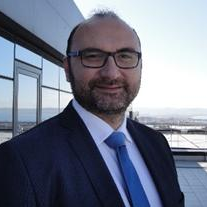Engineering and Decision Support for Sustainable Development
A special issue of Sustainability (ISSN 2071-1050).
Deadline for manuscript submissions: closed (30 April 2022) | Viewed by 14715
Special Issue Editors
Interests: engineering and sustainability management; circular economy; climate change and energy strategies; environmental engineering and management; waste management and energy utilization; decision support and risk assessment tools
Special Issues, Collections and Topics in MDPI journals
Interests: environmental management; environmental engineering; sustainability; circular economy
Special Issues, Collections and Topics in MDPI journals
Special Issue Information
Dear Colleagues,
On a planet that is constantly changing, and in a society that is constantly evolving, applied engineering should be reshaped to consider modern global needs. Thus, in an extremely dynamic period for humanity, with evolution moving at a very fast pace, engineering science is required to adapt to global conditions.
The “Engineering and Decision Support for Sustainable Development” Special Issue calls for high-quality research papers that promote multi-disciplinary tools and techniques to robustly support decision making and solve practical problems towards sustainable development. Τhe issue covers an interdisciplinary area related to the sustainability characterization literature, since it delves into all aspects of the three pillars of sustainability: economy, society and environment. On this basis, the issue will usefully supplement currently available related literature.
Dr. Christos Vlachokostas
Dr. Alexandra V. Michailidou
Guest Editors
Manuscript Submission Information
Manuscripts should be submitted online at www.mdpi.com by registering and logging in to this website. Once you are registered, click here to go to the submission form. Manuscripts can be submitted until the deadline. All submissions that pass pre-check are peer-reviewed. Accepted papers will be published continuously in the journal (as soon as accepted) and will be listed together on the special issue website. Research articles, review articles as well as short communications are invited. For planned papers, a title and short abstract (about 100 words) can be sent to the Editorial Office for announcement on this website.
Submitted manuscripts should not have been published previously, nor be under consideration for publication elsewhere (except conference proceedings papers). All manuscripts are thoroughly refereed through a single-blind peer-review process. A guide for authors and other relevant information for submission of manuscripts is available on the Instructions for Authors page. Sustainability is an international peer-reviewed open access semimonthly journal published by MDPI.
Please visit the Instructions for Authors page before submitting a manuscript. The Article Processing Charge (APC) for publication in this open access journal is 2400 CHF (Swiss Francs). Submitted papers should be well formatted and use good English. Authors may use MDPI's English editing service prior to publication or during author revisions.
Keywords
- Sustainable engineering practices and case studies
- Sustainable energy engineering
- Assessment methods/tools
- Decision support systems
- Policymaking
Benefits of Publishing in a Special Issue
- Ease of navigation: Grouping papers by topic helps scholars navigate broad scope journals more efficiently.
- Greater discoverability: Special Issues support the reach and impact of scientific research. Articles in Special Issues are more discoverable and cited more frequently.
- Expansion of research network: Special Issues facilitate connections among authors, fostering scientific collaborations.
- External promotion: Articles in Special Issues are often promoted through the journal's social media, increasing their visibility.
- e-Book format: Special Issues with more than 10 articles can be published as dedicated e-books, ensuring wide and rapid dissemination.
Further information on MDPI's Special Issue polices can be found here.






